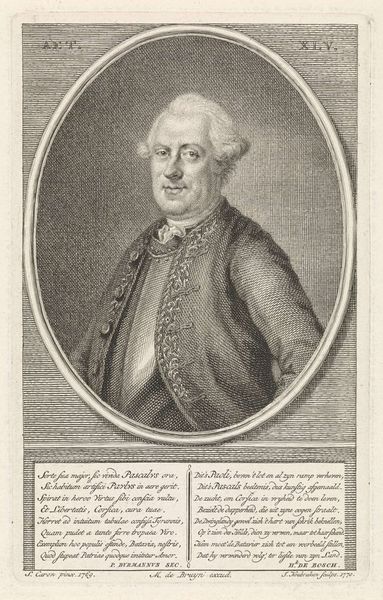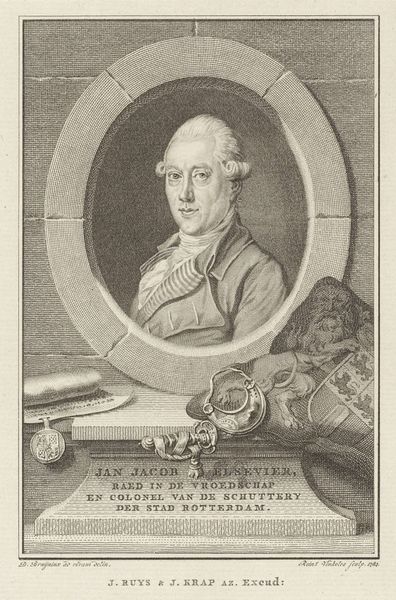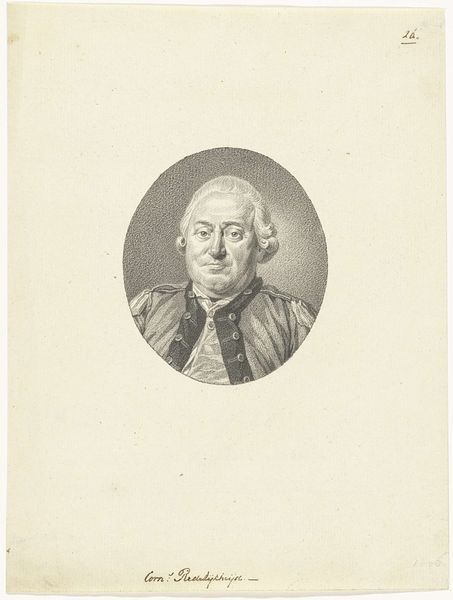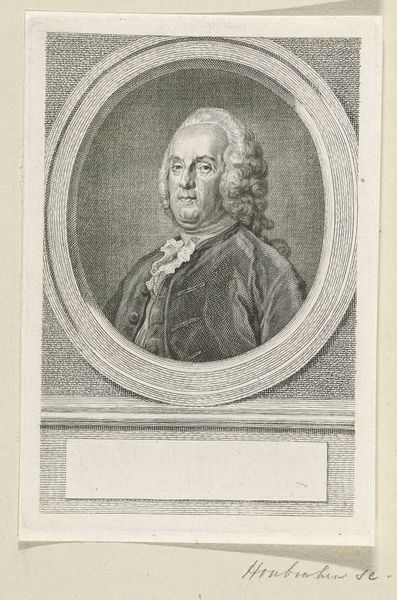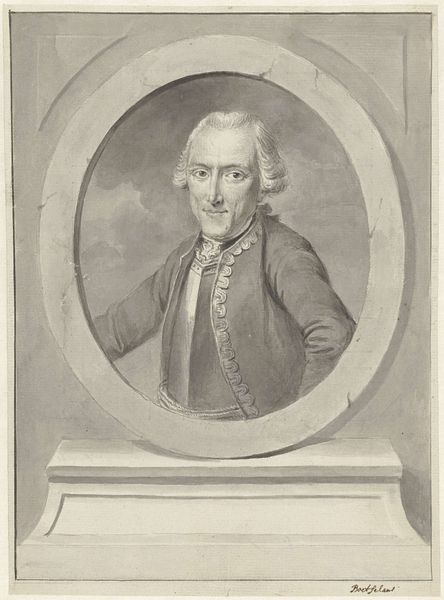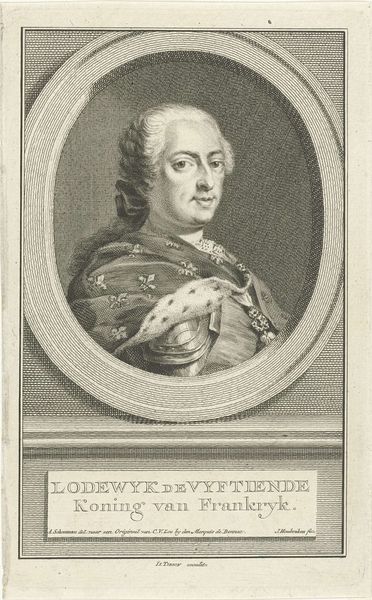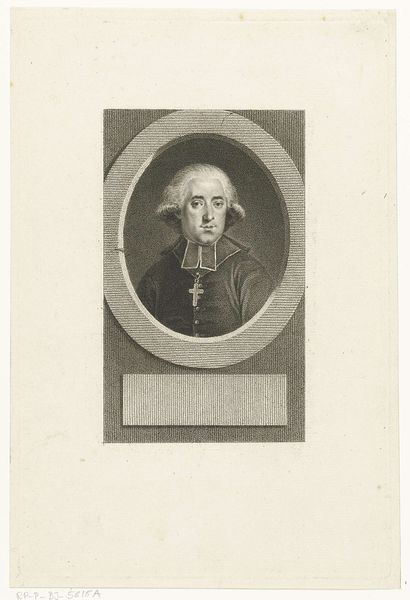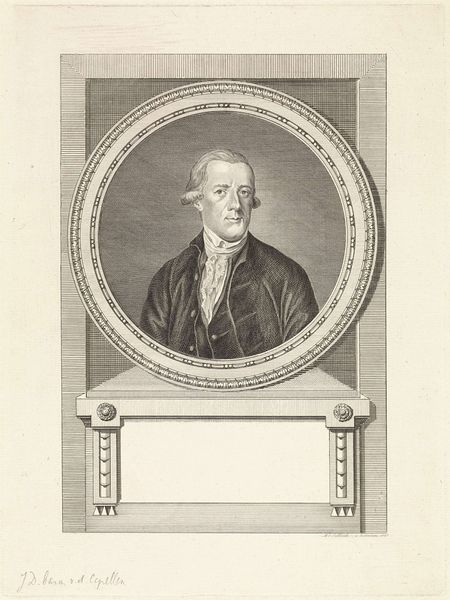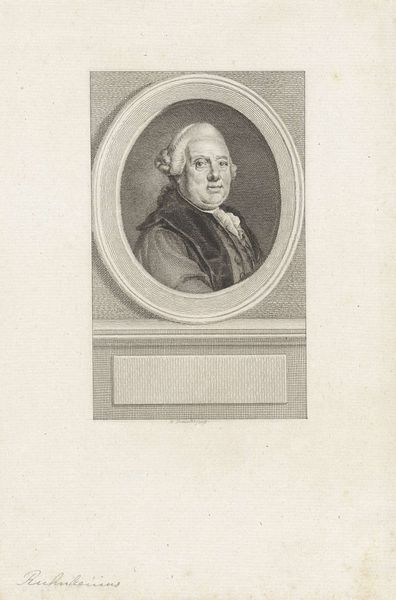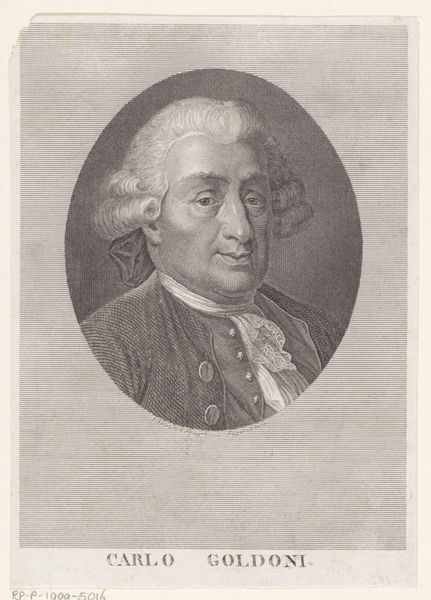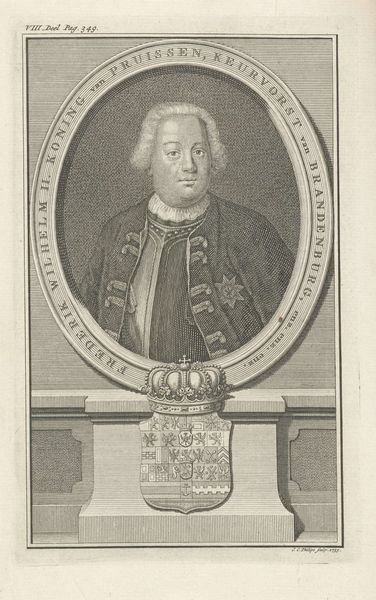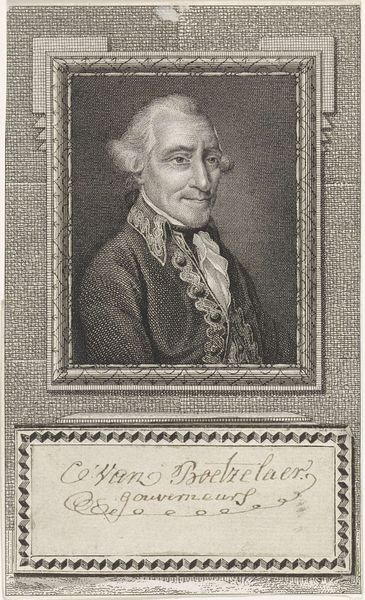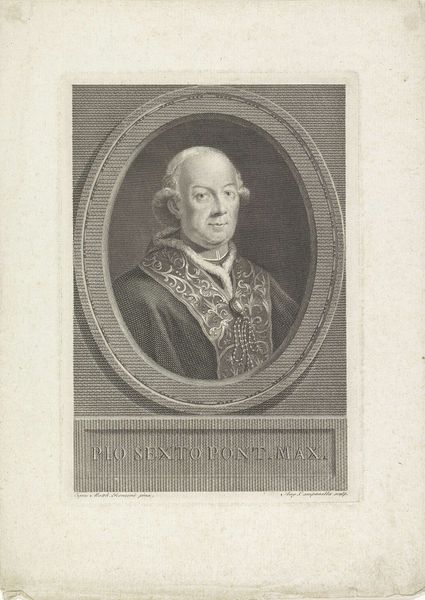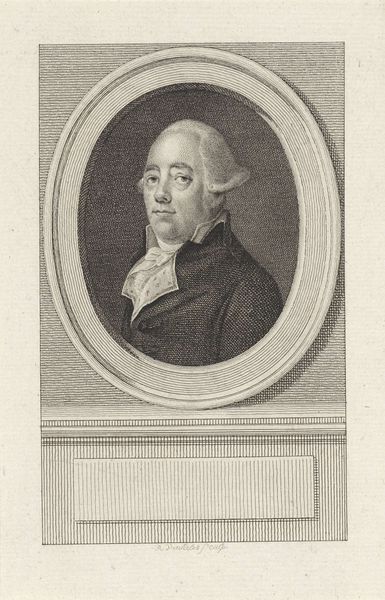
Dimensions: height 349 mm, width 248 mm
Copyright: Rijks Museum: Open Domain
Editor: This is "Portret van Pasquale Paoli," a 1769 engraving on metal by Jacob Houbraken, housed in the Rijksmuseum. It’s striking how formal and posed it is, like a historical record. What kind of statement was Houbraken making with this portrait? Curator: It's more than just a record. Consider Pasquale Paoli as a figure. He was a Corsican patriot, a revolutionary leader fighting for independence. This portrait, produced in the Baroque style, lionizes him – but we need to think about who commissioned it and why. It places him within a tradition of representing power, even as he stood against established European powers. How might this image function as propaganda, even today? Editor: So, it's both a portrait and a political statement? The inscription underneath it is pretty laudatory. I see phrases such as "intrepid warrior." Curator: Exactly! The portrait itself creates a narrative. Houbraken's choice to use the Baroque style – known for its grandeur – frames Paoli as a heroic figure. But the engraving also invites a critical examination of power structures and resistance, even decolonisation. In what ways do you think images like these influence how we understand historical figures? Editor: That's a really good point. It kind of freezes Paoli as this stoic, unwavering figure which isn't likely the entire reality of who he was as a person. Curator: Right. It encourages us to look beyond the surface, to understand the politics inherent in representation, the forces at play behind even what looks like a straightforward portrait. Editor: This was quite eye-opening. I never thought about portraits being used for propaganda, but the context really shows the purpose and motivation. Curator: Indeed. Hopefully it's been useful in enriching our perception of not only the piece itself, but its historical reverberations as well.
Comments
No comments
Be the first to comment and join the conversation on the ultimate creative platform.
